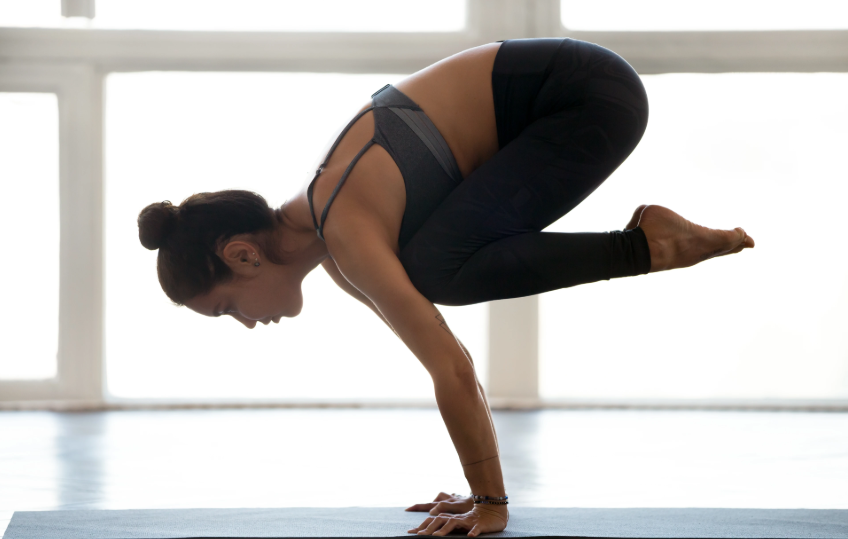Disclosure: This post may contain affiliate links. If you purchase through these links, we may earn a commission at no additional cost to you.
Your Journey to Inner Peace
- The Power of Breath: Pranayama
- Mindful Movements: Yoga Asanas
- Meditation: The Art of Letting Go
- The Science of Stress Reduction
- Building Mental Resilience
- Creating Your Personal Practice
In today's fast-paced world, stress has become an inevitable part of life. However, yoga offers a sanctuary—a way to reconnect with oneself, reduce stress, and foster positivity. This comprehensive guide explores various yoga practices that can help elevate your mindset and embrace a more balanced life.
🌟 Quick Stress Relief Tip
Before diving into the practices, try this: Take 5 deep breaths, inhaling for 4 counts and exhaling for 6 counts. Notice how your body begins to relax immediately.
🌬️ The Power of Breath: Pranayama
Pranayama, the cornerstone of yoga practice, involves controlled breathing techniques that can significantly impact mental well-being. Deep belly breathing and alternate nostril breathing are particularly effective in calming the mind and reducing anxiety.
Scientific studies have shown that regular pranayama practice can lower cortisol levels and improve overall respiratory health. The beauty of breathwork lies in its accessibility—you can practice it anywhere, anytime you feel overwhelmed.
🧘 Mindful Movements: Yoga Asanas
Yoga poses (asanas) combine physical movement with mindfulness to create a powerful stress-relief practice. These gentle movements help release physical tension while calming the mind.
🧘 Pose
✨ Benefits
⏰ Duration
Child's Pose
Calms mind, relieves tension
1-3 minutes
Cat-Cow Stretch
Increases spine flexibility
2-5 minutes
Legs-Up-the-Wall
Reduces anxiety
5-15 minutes
🍃 Meditation: The Art of Letting Go
Meditation practice helps focus the mind and release distractions. Research indicates that just 11 minutes of yoga nidra meditation for 30 days can significantly reduce stress levels and improve sleep quality.
Regular meditation enhances self-awareness and emotional regulation, leading to better stress management and a more positive outlook on life. The key is consistency, not duration—even 5 minutes daily can create meaningful change.
🔬 The Science of Stress Reduction
Scientific evidence strongly supports yoga's effectiveness in stress reduction. Studies show that yoga increases GABA levels, a neurotransmitter associated with relaxation, while reducing activity in the limbic system—the brain's emotional center.
Research has demonstrated that practicing Hatha yoga three times weekly for four weeks can significantly decrease stress, depression, and anxiety levels. The neuroplasticity of our brains means these positive changes can become lasting transformations.
🛡️ Building Mental Resilience
Yoga builds mental resilience through various mechanisms that strengthen your ability to handle life's challenges with grace and composure:
- Enhanced mindfulness and self-awareness - Developing the ability to observe thoughts without judgment
- Improved interoceptive awareness - Better connection with your body's signals and needs
- Increased self-compassion - Learning to treat yourself with kindness during difficult times
- Better self-control - Strengthening your ability to respond rather than react
- Greater spiritual well-being - Connecting with something larger than yourself
📅 Creating Your Personal Practice
To establish an effective yoga practice that fits seamlessly into your lifestyle:
- Start small - Begin with 5-10 minutes daily rather than overwhelming yourself
- Focus on breath - Master basic breathing exercises before complex poses
- Incorporate simple poses - Choose 3-5 poses that feel good for your body
- Progress gradually - Slowly increase duration and complexity as you build strength
- Listen to your body - Honor what you need each day rather than forcing a routine
- Maintain consistency - Regular practice is more beneficial than occasional long sessions
🎯 Pro Tip for Beginners
Set a realistic goal: "I will practice 5 minutes of deep breathing every morning" is more achievable than "I will do yoga for an hour daily." Success breeds success!
🌟 Conclusion
Yoga offers a comprehensive approach to mental well-being, combining physical postures, breathing techniques, and meditation. By incorporating these practices into your daily routine, you can develop greater resilience, reduce stress, and cultivate a more positive mindset.
Remember that consistency is key—start small and gradually build your practice for lasting benefits. Your journey to inner peace and mental clarity begins with a single breath, a single pose, a single moment of mindfulness.
Share This Peaceful Journey
References & Citations
[1] Yoga for Stress - Healthline
[2] Pranayama and Respiratory Health - NCBI
[3] Yoga for Stress Management - KidsHealth
[4] Yoga for Mental Health - Moriah Behavioral Health
Topics:
HealthHub Team
Wellness expert and certified instructor sharing evidence-based health tips and practical fitness advice to help you live your healthiest life.



